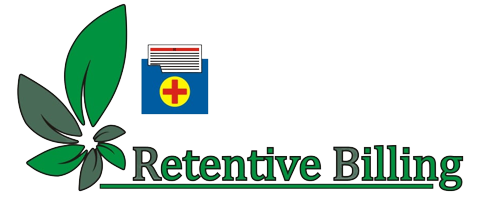Within nephrology practices effective medical billing is not just a matter of guidelines but an evolving guidebook that requires constant updates. At the heart of this guidebook lies the correct Nephrology Billing code and adherence to the best nephrology billing services protocols.
In today’s blog post, we embark on a journey through the world of nephrology billing guidelines. Recognizing the pivotal role of efficiency and accuracy in billing practices, particularly in the complex field of nephrology, we’ll explore strategies to streamline your nephrology billing process.
Understanding Nephrology Billing Services
Nephrology billing services play a crucial role in supporting nephrologists with their billing and reimbursement processes. Beyond the serious business of claims and denials, these services offer comprehensive support, including coding, claims processing, appeals, denials management, and compliance guidance. The seven common services they cover include critical care nephrology, kidney dialysis, interventional nephrology, onconephrology, pediatric nephrology, kidney transplantation, and percutaneous needle biopsy.
Nephrology Billing Challenges
Before diving into the specifics, it’s essential to understand the challenges faced by nephrology practices in billing:
- Complex Coding: Nephrology medical billing involves intricate coding that changes regularly, demanding consistent effort to keep up.
- Time-Consuming Processes: Manual billing processes consume valuable time that could be better utilized for patient care.
- Compliance Issues: Staying abreast of evolving healthcare regulations poses a significant challenge.
- Increased Denials: Erroneous claims or procedural missteps often lead to a surge in claim denials.
- Lack of Training: Insufficient expertise in billing procedures can result in inefficiencies and errors.
- Costly Mistakes: Errors in billing can lead to hefty fines or revenue loss for nephrology practices.
- Inefficient Software: Outdated or inefficient billing software can contribute to longer processing times and errors.
- Lack of Transparency: A lack of transparency in billing processes can impact trust and patient satisfaction.
- Patient Dissatisfaction: Complex billing processes can lead to patient confusion and dissatisfaction.
- Staying Up-to-date: The dynamic nature of healthcare billing makes it challenging for practices to stay current.
Coding and Documentation for Nephrology Services
Accurate coding and documentation form the bedrock of successful nephrology billing. The Current Procedural Terminology (CPT) codes, developed by the American Medical Association (AMA), describe various medical services and procedures. Assigning the relevant CPT code accurately is crucial for proper reimbursement. Documentation, being comprehensive and legible, supports billing and effective communication among healthcare providers.
Nephrology Billing Guidelines for Specific Services
Dialysis Services
Dialysis, a critical component of nephrology care, demands accurate billing. Key guidelines include using the nephrologist’s National Provider Identifier (NPI) for supervision, employing appropriate CPT codes, and using modifiers like -59 when necessary.
Kidney Transplantation
Billing for kidney transplantation involves meticulous practices. Guidelines include accurate evaluation and management (E/M) services coding, detailing transplant surgery procedures, and managing immunosuppressive drug therapy.
Management of Kidney Disease
For the ongoing management of chronic kidney disease (CKD), billing guidelines emphasize accurate CKD staging, proper billing for laboratory services, and adherence to Chronic Care Management (CCM) guidelines.
Staying Up-to-Date with Nephrology Billing Guidelines
To stay abreast of evolving nephrology billing guidelines, consider these strategies:
- Continuing Education: Engage in regular continuing education courses specific to nephrology billing.
- External Resources: Rely on reputable external resources, such as professional organizations, for updates on billing guidelines.
- Consultation and Collaboration: Collaborate with fellow nephrologists and billing specialists for insights and shared experiences.
Choosing Software for Nephrology Billing
To streamline nephrology billing despite challenges, consider all-in-one solutions like nephrology billing software. These solutions offer features such as a financial dashboard, patient dashboard, analytics, and detailed financial reports to manage coding and claim submissions efficiently.
In conclusion, mastering nephrology finances through successful medical billing requires a proactive approach, continuous learning, and leveraging technology. By understanding the unique challenges, adhering to coding and documentation best practices, and staying informed, nephrology practices can navigate the complex landscape of billing with confidence and precision.
